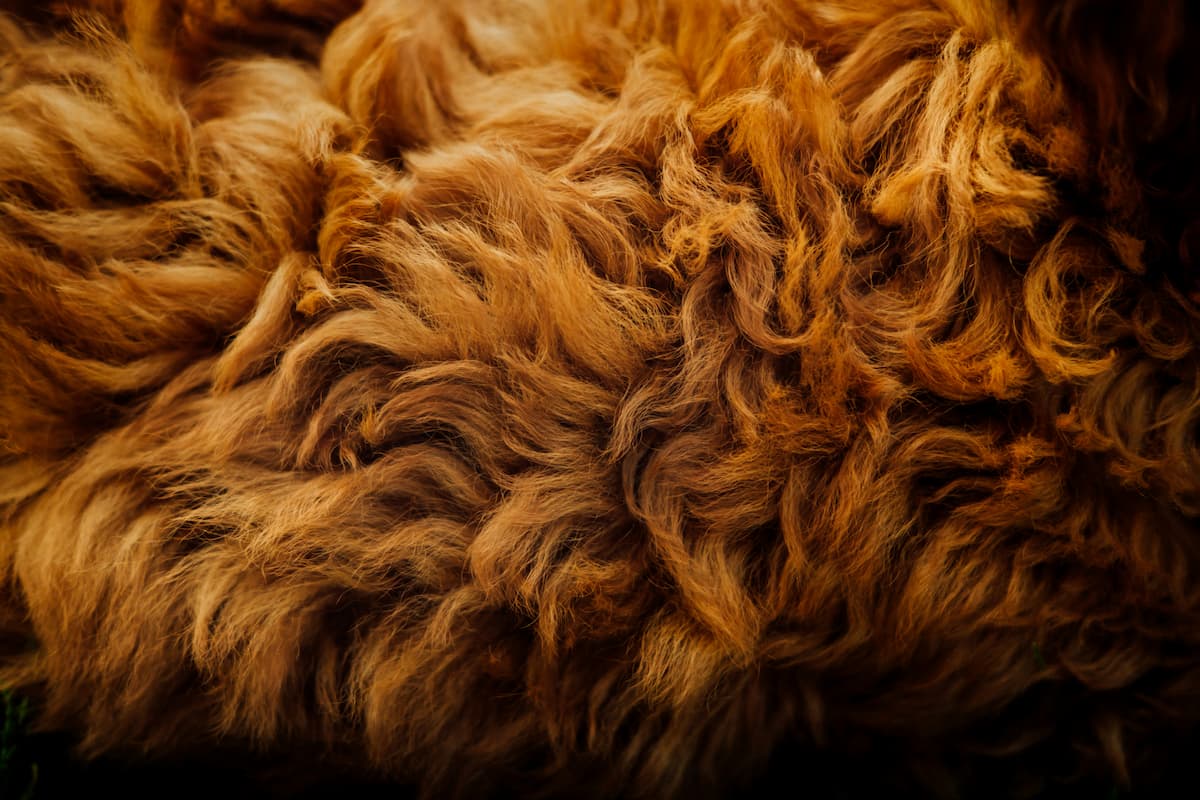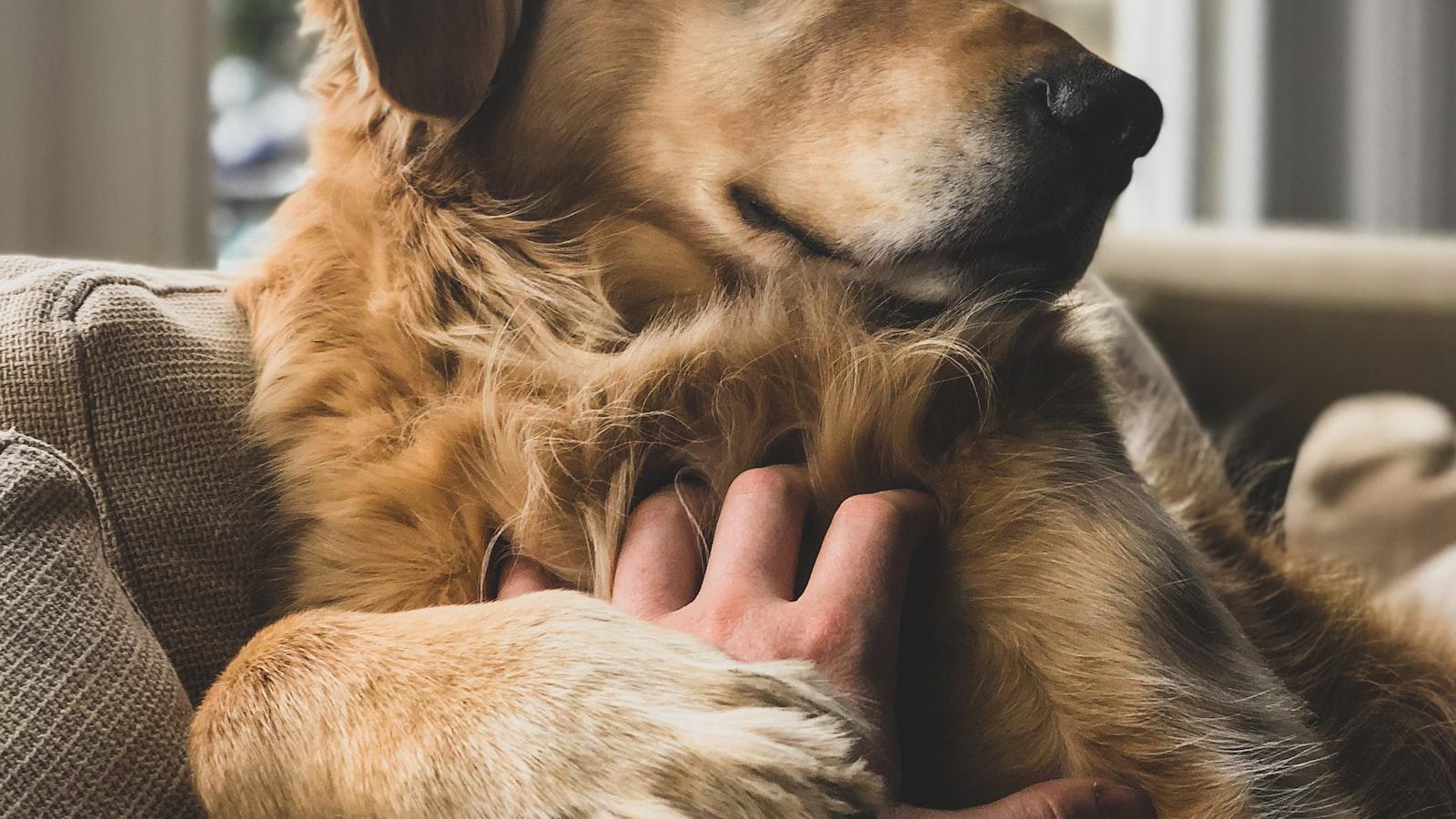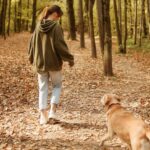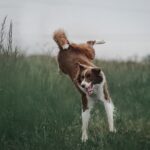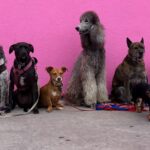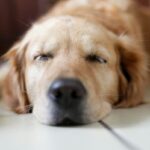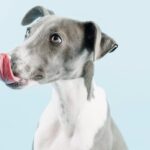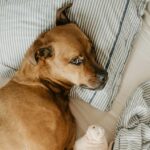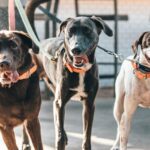Have you ever come home to find your beloved furry friend munching on a strand of hair?
It seems pretty odd, doesn’t it?
Why on earth would dogs even be remotely interested in chowing down on a human’s or even their fellow canine’s hair?
Read on to answer the question: Why do dogs eat hair?
Understanding the Motives Behind Dogs Eat Hair
So you’ve noticed that your furry friend has developed a rather peculiar habit of munching on hair.
While it may seem strange and even slightly gross, rest assured, you’re not alone in wondering why dogs eat hair.
This quirky behavior can have several possible explanations, ranging from instinctive behavior to underlying health issues:
1. Instinctual Grooming
Dogs are natural groomers, and in the wild, they would often nibble on their own fur or the fur of their packmates to clean themselves.
This grooming behavior helps remove dirt, debris, and loose hair from their coats, keeping them clean and comfortable.
So, when your fluffy companion chomps on your hair, it’s their way of maintaining their hygiene and imitating their natural instincts.
2. Natural Instincts
Dogs are descendants of wolves, and some believe that ingesting hair and fur mimics their ancestral behavior.
In the wild, wolves consume the entire prey, including the fur, which aids in digestion.
Domesticated dogs may have inherited this instinct, leading them to chew on hair or lick their coats excessively.
3. Boredom or anxiety
Dogs are social creatures that thrive on interaction and mental stimulation.
When they lack companionship or feel anxious, they may resort to unusual behaviors like eating hair as a coping mechanism.
Chewing on hair provides them with a sense of comfort and distraction, almost like a pacifier for infants.
It’s important to ensure our furry friends receive plenty of exercise, mental stimulation, and affection to prevent boredom-associated behaviors.
4. Nutrient deficiency
Hair contains trace amounts of nutrients, such as keratin and protein.
In some cases, dogs may consume hair in an attempt to compensate for any nutrient deficiencies they may be experiencing.
While this behavior is rare and often associated with underlying health issues, it’s essential to provide a well-balanced diet to our furry companions to meet their nutritional needs adequately.
5. Underlying health issues
If your furry friend’s hair-eating tendencies are excessive or accompanied by other concerning symptoms, such as vomiting or weight loss, it may be a sign of a condition called pica.
Pica is a disorder characterized by the consumption of non-food items, and it can signal nutritional deficiencies or gastrointestinal problems.
If you’re concerned about your dog’s hair-eating habits, it’s always best to consult with a veterinarian to rule out any potential health issues.
Tips for Discouraging Your Dog’s Hair-Eating Habits
While this behavior is generally harmless, excessive consumption can lead to digestive issues, such as hairballs or blockages in the gastrointestinal tract.
Excessive consumption of hair can potentially result in intestinal blockages, leading to severe health complications that may require immediate veterinary care.
But fear not, as there are several tips and tricks you can employ to discourage your furry friend from indulging in their hair-eating habits.
1. Provide a Balanced Diet: One of the main reasons dogs resort to eating hair is due to a lack of essential nutrients.
Ensure your pup’s diet includes high-quality dog food that is rich in proteins, vitamins, and minerals.
This will not only keep their coat healthy and reduce shedding, but it will also curb their hair-eating cravings.
2. Regular Grooming Sessions: Brushing your dog’s fur regularly not only helps to remove loose hair but also keeps their coat clean and tangle-free.
By minimizing the amount of loose hair around your home, you can prevent your dog from snacking on those tempting hair strands.
Plus, grooming sessions provide an excellent opportunity for quality bonding time with your furry companion.
3. Distract and Divert: When you catch your dog attempting to chow down on hair, it’s essential to redirect their attention towards a more appropriate activity.
Engage them in interactive play with their favorite toys or take them for a brisk walk.
This not only helps to distract them from their hair-eating habit but also provides mental and physical stimulation that is necessary for their overall wellbeing.
Remember, breaking a habit takes time and patience.
Consistency is key, so be sure to use a combination of these tips to discourage your dog’s hair consumption.
With a proper diet, regular grooming sessions, and plenty of distractions, you can help your furry friend overcome their hair-eating tendencies and keep them healthy and happy for years to come.
When to Seek Professional Help for Hair-Eating Behavior
It can be quite puzzling to see our furry friends munching on hair.
While it may seem odd, dogs consuming hair is not uncommon.
There can be various reasons behind this peculiar behavior, and it is essential to understand when it becomes a cause for concern.
Possible Explanations:
1. Exploratory Instinct: Dogs are naturally curious creatures, and sometimes, hair-eating might just be an extension of their inquisitiveness.
They could be exploring new textures and tastes.
However, if this behavior becomes excessive or compulsive, it may require professional attention.
2. Pica: Just like humans, dogs can also develop pica, a condition where they consume non-food items.
Hair-eating can be a manifestation of this disorder.
If you notice your dog consuming hair in large quantities or any other non-food substances, it’s advisable to consult a veterinarian.
When to Seek Professional Help:
If you observe any of the following signs, it’s crucial to consult a veterinarian to address your dog’s hair-eating behavior:
-
- Vomiting or constipation
-
- Lethargy or loss of appetite
-
- Gastrointestinal distress
-
- Visible distress or discomfort while passing stool
Remember, it’s essential to differentiate between occasional hair-eating and a persistent, compulsive habit.
Your veterinarian will conduct a thorough examination to determine the underlying cause and provide the necessary guidance and treatment.
FAQ
Q: What makes dogs interested in hair?
A: It’s important to remember that dogs are natural scavengers.
Their wild ancestors would often feast on the remains of prey, including hair and fur.
So it’s no surprise that this instinct may still be present in our domesticated pups!
Q: Is it a cause for concern if my dog eats hair?
A: If your pooch occasionally nibbles on a strand of your hair or their own fur, don’t fret too much.
It’s pretty normal behavior, especially during self-grooming.
However, if your dog’s hair-eating habit becomes frequent or excessive, it could signal an underlying issue that requires attention.
Q: What are some possible reasons for excessive hair eating?
A: Several factors could contribute to this peculiar habit.
One common reason is boredom or anxiety.
Dogs, just like humans, may develop strange habits as a way to cope with stress or to keep themselves occupied.
It’s their version of thumb-twiddling!
Q: Can medical conditions lead to dogs eating hair?
A: Absolutely.
Sometimes, excessive hair consumption can be a sign of an underlying health problem.
For instance, gastrointestinal issues, nutrient deficiencies, or even allergies can trigger the urge to consume hair.
Q: Should I consult a veterinarian if my dog is excessively eating hair?
A: Definitely!
If your furry pal goes overboard with hair munching, it’s always a good idea to reach out to a trusted veterinarian.
They can evaluate your dog’s overall health, run some tests if needed, and recommend the appropriate treatment or behavioral adjustments.
Q: How can I prevent my dog from eating hair?
A: There are a few steps you can take to discourage excessive hair consumption.
First and foremost, make sure your dog has plenty of mental and physical stimulation to keep boredom at bay.
Regular exercise, interactive toys, and quality playtime will work wonders.
Additionally, grooming your pup regularly may help reduce the amount of loose hair for them to snack on.
Q: Is there anything else I should keep in mind about dogs and their hair-eating habits?
A: While it can be worrisome to witness your furry companion gobbling up hair, it’s essential to approach the situation with a level head.
Remember, each dog is unique, and what might be a small habit for one could be a cause for concern in another.
Trust your instincts and consult a professional if you have any doubts or worries.
So, next time you spot your pooch munching on a little hair, don’t panic!
It’s just one of those quizzical behaviors that come with the territory of being a dog lover.
Concluding Statement
From their instinctual grooming tendencies to the potential nutritional deficiencies.
It’s clear that this bizarre hair-eating habit is not without its reasons.
So, the next time you catch your faithful four-legged friend nibbling on your lovely locks or snacking on stray strands, don’t despair.
They may just be following their natural instincts or trying to meet their nutritional needs in the most peculiar of ways.
Remember to keep an eye out for excessive hair consumption, as it could be a sign of an underlying health issue.
But for the most part, take a moment to appreciate the eccentricities that make our furry friends so endearing.
Because let’s face it, they can be a hair-raising puzzle at times, but they’ll always find a way to put a smile on our faces.
So, embrace the occasional hairy mealtime and continue to adore the lovable quirks that make our canine companions truly one-of-a-kind.


